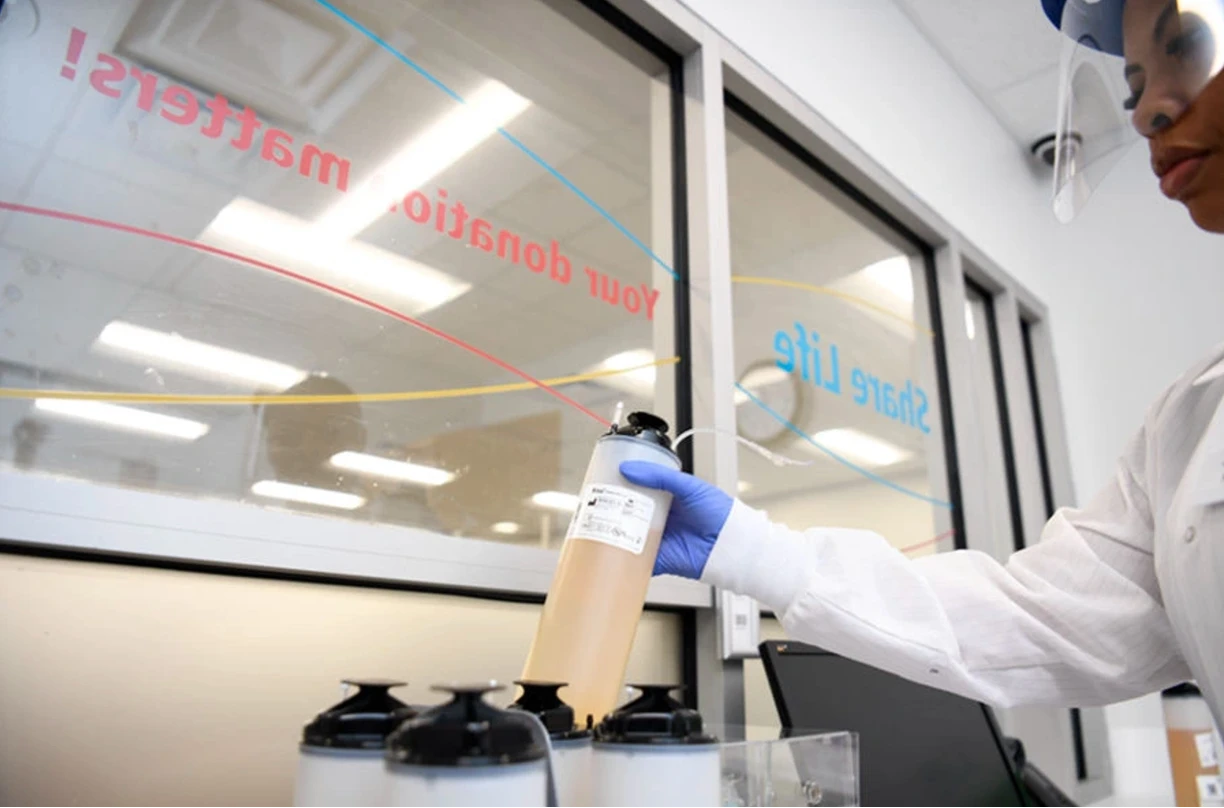How Plasma Donation Helps Save Lives for Expectant Mothers
Understanding Rho(D) Immune Globulin
Everyone has one of four blood types: A, B, AB, or O. Besides this, people also have Rh genes from their parents. If you have the D gene, you're Rh-positive. If you don't, you're Rh-negative. The "positive" or "negative" part of your blood type, such as O positive or A negative, refers to your Rh status.
During pregnancy, if a mom has Rh-negative blood and her baby has Rh-positive blood, the baby's blood can mix with the mom's. This makes the mom's body create antibodies against Rh-positive blood, which is called Rh sensitization.
Rh sensitization usually doesn't affect the first pregnancy but can cause problems in future pregnancies. If the mom gets pregnant again with an Rh-positive baby, her antibodies might attack the baby's blood cells, causing issues in the baby that may include anemia, jaundice, or even death.
Thankfully, a therapy called “Rho(D) Immune Globulin” can prevent Rh sensitization. Rh-negative moms should get this treatment during and after pregnancy to avoid these problems.
How Plasma Donation Helps
Rho(D) Immune Globulin is a medication made from donated plasma. It prevents an Rh-negative mother's body from making Rh antibodies if she hasn't already produced them. This medication is given to Rh-negative women during and after pregnancy to prevent the creation of antibodies that could affect both the current pregnancy and any future pregnancies.
The Gift of Life
Not all plasma collected is used to create Rho(D) Immune Globulin; only plasma from donors in the Anti-D program is utilized for the creation of this lifesaving medication. These donors play a crucial role because their plasma contains the essential antibody needed to prevent complications in Rh-negative pregnancies.
Celebrating Plasma Donors
This Mother's Day, let's celebrate not only the mothers who give life but also the plasma donors who help protect it. Their generosity and compassion extend beyond their own families, touching the lives of countless others in need.
Plasma donations contribute to life-saving therapies that help individuals, including mothers, around the world. If you're interested in becoming a plasma donor, find a CSL Plasma near you and donate today!
Happy Mother's Day to all the wonderful moms, mother figures, and plasma donors out there!
Explore More Articles

How to Prepare to Donate Plasma
8 April, 2024
Donating plasma is a safe and easy way for eligible donors to help others in need. Plasma is a component of blood that contains important proteins, antibodies, and other substances that can be used to treat a variety of medical conditions. By donating plasma, you can help people with immune deficiencies, bleeding disorders, and other serious illnesses. If you are considering donating plasma, there are a few things you should do to prepare. Let us provide you with the information you need to have a good donation experience, including what you should do before donating, what you should not do, what to bring with you, and why donating plasma is important.

Difference Between Plasma, Platelet, & Blood Donation
31 January, 2024
Have you ever wondered how you can help others in need? Donating plasma, platelets, or blood is a great way to make a difference in someone's life. In this blog post, we will discuss the differences between plasma, platelet, and blood donation, including the donation process, eligibility, and benefits. We will also provide information on how to prepare for plasma donation and how to sign up to donate plasma with CSL Plasma.

